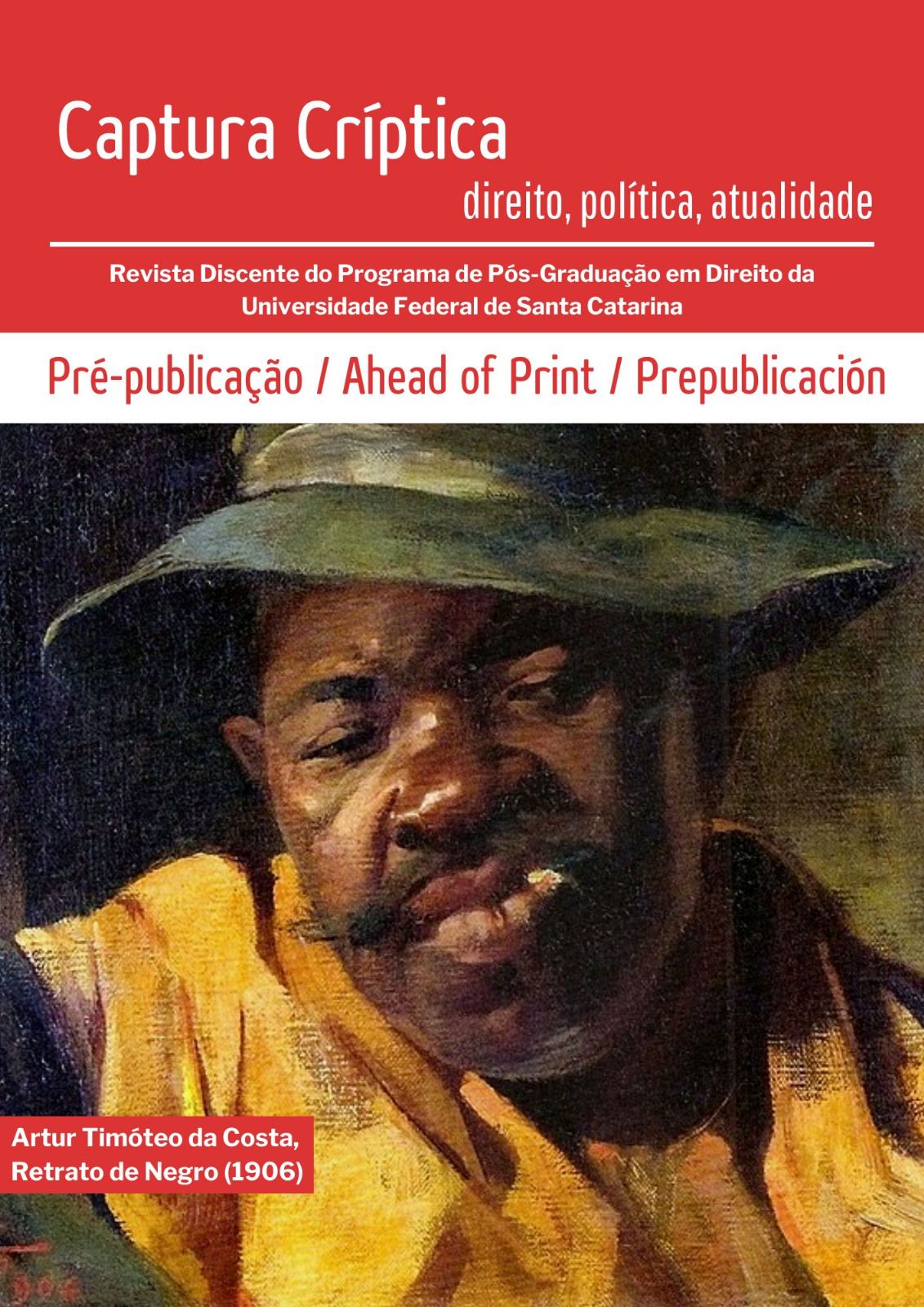Estado de proteção social ou Estado global de violências? Descolonizar e despatriarcalizar as políticas de proteção social
Palavras-chave:
proteção social, violências, racismo, patriarcadoResumo
Este artigo propõe uma discussão acerca do Estado de Proteção Social instituído no Brasil e ao alçamento dos direitos sociais ao status de direitos humanos fundamentais. As bases desse sistema de proteção, insculpidas na Constituição Federal, estabelece que esses direitos devem ser distribuídos com base em um sistema de reconhecimento de direitos baseado na ausência total de preconceitos de qualquer espécie. No entanto, esse sistema redistributivo é extremamente limitado, tendo em vista as reorganizações cíclicas do sistema de produção capitalista, mercantilizador da vida social. Ademais, estando o sistema de proteção cimentado em um sistema mundo moderno/colonial/capitalista/patriarcalista, as políticas sociais acabam por revitimizar as pessoas mais vulnerabilizadas e precarizadas, que acabam por serem tratadas como culpadas pela própria condição social que se encontram. Portanto, urge romper com a lógica capitalista, colonialista e patriarcalista para que se tenham políticas sociais que não reproduzam um estado global de violências contra, especialmente, contra as mulheres, as pessoas negras, as pessoas LGBTQIA+ e aquelas que vivem nas regiões mais periféricas não desapareceria, já que produzidas pelas próprias estruturas estatais.
Referências
BEHRING, Elaine Rossetti. Fundo público, valor e política social. São Paulo: Cortez, 2021.
BEHRING, Elaine Rossetti. Política Social no Capitalismo Tardio. 5. ed. São Paulo: Cortez, 2011.
BOSCHETTI, Ivanete. A insidiosa corrosão dos sistemas de proteção social europeus. São Paulo: Serv. Soc. Soc., n. 112, p. 754-803, out./dez. 2012.
BUENO, Nayara Cristina; PREUSS, Lislei Teresinha. O giro decolonial e suas contribuições para a análise da proteção social na América Latina. Serv. Soc. Rev., Londrina, v. 24, n.1, p. 232-251, jan./jun. 2021.
DORLIN, Elsa. Autodefesa. Uma filosofia da violência. São Paulo: Editora Ubu, 2020.
ESCRIVÃO FILHO, Antonio; SOUSA JÚNIOR, José Geraldo de. Para um debate teórico-conceitual e político sobre os Direitos Humanos. Belo Horizonte: Editora D’Plácido, 2016.
GONZALEZ, Lélia. Por um feminismo afro-latino-americano: ensaios, intervenções e diálogos. Rio de Janeiro: Zahar, 2020.
LUGONES, María. Colonialidade e gênero. In: HOLLANDA, Heloisa Buarque de (Org.). Pensamento feminista hoje: perspectivas decoloniais. Rio de Janeiro: Bazar do Tempo, 2020. p. 59-93.
ORGANIZAÇÃO PAN-AMERICANA DA SAÚDE. 2020. OMS declara emergência de saúde pública de importância internacional por surto do novo coronavírus. Disponível em https://www.paho.org/pt/news/30-1-2020-who-declares-public-health-emergency-novel-coronavirus , acessada em 11/01/2023.
PEIXOTO, Michaele Lemos; BARROSO, Hayeska Costa. Judicialização e seguridade social: restrição ou efetivação de direitos sociais?. R. Katál, Florianópolis, v. 22, n. 1, p. 90-99, jan./abr., 2019.
QUIJANO, Aníbal. Colonialidade do poder, eurocentrismo e América Latina. In: LANDER, Edgardo (org.). A colonialidade do saber: eurocentrismo e ciências sociais – perspectivas latino-americanas. Buenos Aires: CLACSO, 2005. p.117-142.
REDON, Silvio Aparecido; CAMPOS, Eliane Christine Santos de. Tendências atuais da proteção social: considerações sobre o workfare e as políticas de ativação. SER Social, Brasília, v. 23, n. 48, janeiro a junho de 2021.
SANTOS, Boaventura de Sousa. A cruel pedagogia do vírus. Coimbra: Edições Almedina, 2020.
VERGÈS, Françoise. Um feminismo decolonial. São Paulo: Editora Ubu, 2020.
VERGÈS, Françoise. Uma teoria feminista da violência. São Paulo: Editora Ubu, 2021.
Downloads
Publicado
Edição
Seção
Licença
Copyright (c) 2023 Luciana Alves Dombkowitsch, Cesar Augusto Soares da Costa

Este trabalho está licenciado sob uma licença Creative Commons Attribution-NonCommercial-NoDerivatives 4.0 International License.
Os trabalhos publicados na Revista Captura Críptica estão sob a Licença Creative Commons Attribution-NonCommercial-NoDerivatives 4.0 International.










